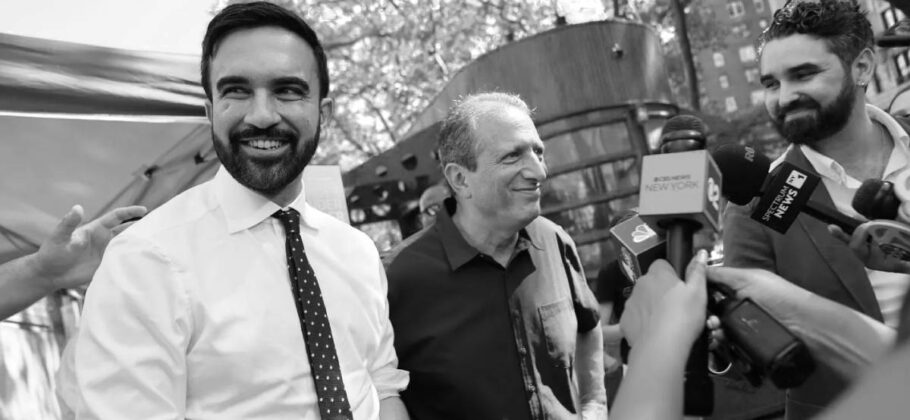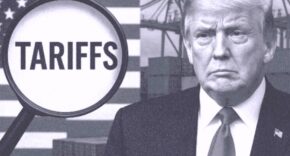New York City’s 2025 mayoral race has taken a dramatic turn with Zohran Mamdani’s surprising Democratic primary win. The 33-year-old democratic socialist defeated former Governor Andrew Cuomo with a bold platform promising affordability through a rent freeze, free childcare, free bus rides, and more affordable housing. To fund these ambitious plans, Mamdani proposes a 2% “millionaire tax” on New Yorkers earning over $1 million annually, which he estimates will raise $4 billion each year. But will this tax save the city by funding essential services, or sink it by driving away its wealthiest residents?
Mamdani’s Vision for a Fairer New York
Mamdani’s campaign focuses on making life more affordable for everyday New Yorkers. His millionaire tax targets the top 1%—about 34,000 households—who he claims earn 35% of the city’s total income. By adding a 2% surtax on income over $1 million, Mamdani aims to make New York’s tax system more progressive. Unlike the federal and state income taxes, which increase rates as income rises, New York City’s current tax system is nearly flat, ranging from 3.078% to 3.876%. Mamdani argues this unfairly burdens middle- and lower-income residents, while the wealthiest pay a similar rate despite their vast earnings.
His plan draws inspiration from Massachusetts, where a 4% surtax on incomes over $1 million, approved in 2022, raised $1.8 billion in its first nine months. Those funds supported school lunches, transportation, and education without triggering a mass exodus of millionaires. In fact, IRS data shows a 36% increase in Massachusetts tax returns reporting over $1 million in income from 2018 to 2022, and Wealth X reported a 38.6% rise in the state’s millionaire population from 2022 to 2024. Mamdani cites similar data from a 2023 Fiscal Policy Institute report, which found that New York’s top 1% leave the city at a lower rate than other income groups, often moving to high-tax states like New Jersey or California for quality-of-life reasons rather than tax avoidance.
The Opposition: Will the Rich Flee?
Not everyone is convinced. Billionaire Bill Ackman, CEO of Pershing Square Capital Management, warned on X that Mamdani’s policies could make New York City “dangerous and economically unviable.” Ackman fears the millionaire tax will drive wealthy residents out, taking their tax dollars with them. Rapper 50 Cent echoed this sentiment, jokingly offering Mamdani $258,750 and a “first-class one-way ticket” out of the city, citing concerns over higher taxes. Some Republicans have gone further, attacking Mamdani’s background as a Uganda-born naturalized citizen and even calling for his deportation.
Critics point to cases like Jeff Bezos, who left Washington after it introduced a 7% capital gains tax on gains over $250,000, with an additional 2.9% surtax on gains above $1 million starting in 2025. However, Bezos claimed his move to Florida was for family and business reasons, not taxes. A 2016 study of 45 million tax records supports this, finding that only 0.3% of millionaires move states annually—a lower rate than the general population. The study suggests millionaires often stay put, absorbing higher taxes or using savvy tax planning to minimize their burden.
A Controversial Property Tax Proposal
Mamdani’s tax plan doesn’t stop at income. He also proposes shifting the property tax burden from “overtaxed homeowners in the outer boroughs” to “more expensive homes in richer and whiter neighborhoods.” His campaign argues that the current property tax system unfairly taxes family homes in Black and Latino areas like Jamaica and Brownsville more heavily than wealthier areas. By adjusting assessment rates, Mamdani aims to lower taxes for lower-income homeowners while increasing them for those in pricier neighborhoods. This proposal has sparked backlash, with conservative commentators like Eric Daugherty of Florida’s Voice labeling it racist and urging voters to support incumbent Mayor Eric Adams instead.
Can It Work?
Mamdani’s supporters argue his tax plan could fund transformative programs while addressing inequality. Free childcare, free buses, and affordable housing could improve quality of life for millions, potentially keeping more residents in the city than any tax increase might drive away. Critics, however, warn that higher taxes could deter businesses and high earners, reducing the city’s tax base and economic vitality. Other states like Illinois, Maryland, and Hawaii are exploring similar millionaire taxes, suggesting a growing trend—but their outcomes remain uncertain.
As the November 2025 mayoral election approaches, Mamdani’s tax plan will remain a lightning rod. Bookmakers give him an 80% chance of defeating Adams, who’s running as an independent, but the debate over his policies is far from settled. Will the millionaire tax make New York City a fairer, more affordable place to live, or will it push the wealthy to greener pastures, leaving the city’s budget in peril? New Yorkers will soon decide.











